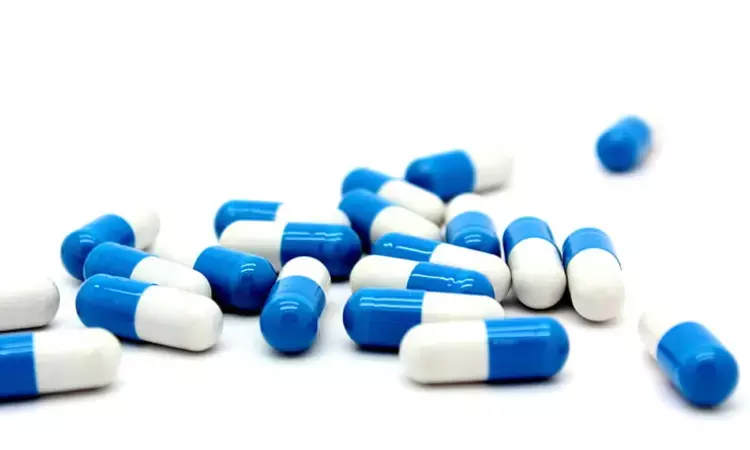- Home
- Medical news & Guidelines
- Anesthesiology
- Cardiology and CTVS
- Critical Care
- Dentistry
- Dermatology
- Diabetes and Endocrinology
- ENT
- Gastroenterology
- Medicine
- Nephrology
- Neurology
- Obstretics-Gynaecology
- Oncology
- Ophthalmology
- Orthopaedics
- Pediatrics-Neonatology
- Psychiatry
- Pulmonology
- Radiology
- Surgery
- Urology
- Laboratory Medicine
- Diet
- Nursing
- Paramedical
- Physiotherapy
- Health news
- Fact Check
- Bone Health Fact Check
- Brain Health Fact Check
- Cancer Related Fact Check
- Child Care Fact Check
- Dental and oral health fact check
- Diabetes and metabolic health fact check
- Diet and Nutrition Fact Check
- Eye and ENT Care Fact Check
- Fitness fact check
- Gut health fact check
- Heart health fact check
- Kidney health fact check
- Medical education fact check
- Men's health fact check
- Respiratory fact check
- Skin and hair care fact check
- Vaccine and Immunization fact check
- Women's health fact check
- AYUSH
- State News
- Andaman and Nicobar Islands
- Andhra Pradesh
- Arunachal Pradesh
- Assam
- Bihar
- Chandigarh
- Chattisgarh
- Dadra and Nagar Haveli
- Daman and Diu
- Delhi
- Goa
- Gujarat
- Haryana
- Himachal Pradesh
- Jammu & Kashmir
- Jharkhand
- Karnataka
- Kerala
- Ladakh
- Lakshadweep
- Madhya Pradesh
- Maharashtra
- Manipur
- Meghalaya
- Mizoram
- Nagaland
- Odisha
- Puducherry
- Punjab
- Rajasthan
- Sikkim
- Tamil Nadu
- Telangana
- Tripura
- Uttar Pradesh
- Uttrakhand
- West Bengal
- Medical Education
- Industry
Drug Safety Alert: Indian Pharmacopoeia Commission flags adverse reactions linked to Etoricoxib, others

New Delhi: The Indian Pharmacopoeia Commission (IPC), through its recently issued drug safety alert for the month of July, has revealed that certain drugs, such as Etoricoxib, Torsemide, Quetiapine and Valproic Acid Interaction, are associated with Adverse Drug Reactions (ADRs), respectively, Acute Generalized Exanthematous Pustulosis (AGEP), DRESS Syndrome, and Neuropsychiatric Adverse Events.
This came after preliminary analysis of Adverse Drug Reactions (ADRs) from the Pharmacovigilance Programme of India (PvPI) database.
Etoricoxib is a synthetic, nonsteroidal anti-inflammatory drug (NSAID) that acts by binding and inhibiting the enzyme cyclooxygenase-2 (COX-2), resulting in inhibition of the conversion of arachidonic acid into prostaglandins. It possesses antipyretic, analgesic, and potential antineoplastic properties. It is indicated for the treatment of pain, swelling, and inflammatory conditions due to arthritis.
However, the Indian Pharmacopoeia Commission has raised its voice, claiming that Etoricoxib is linked to Acute Generalized Exanthematous Pustulosis in a recent drug safety alert. Acute generalised exanthematous pustulosis (AGEP) is a severe, uncommon acute eruption marked by the development of numerous nonfollicular sterile pustules on a background of edematous erythema.
Furthermore, Torsemide is a potent loop diuretic which is used for the treatment of oedema associated with congestive heart failure & hypertension. Following the preliminary analysis of Adverse Drug Reactions (ADRs) from the PvPI database, the Indian Pharmacopoeia Commission (IPC) reported that Torsamide can cause DRESS syndrome, or Drug Rash with Eosinophilia and Systemic Symptoms, which is a hypersensitivity reaction with an estimated mortality of up to 10%.
In addition to this, the Indian Pharmacopoeia Commission (IPC), in its latest drug safety alert, has also pointed out an adverse drug reaction caused by Quetiapine & Valproic Acid drug interaction.
Quetiapine is a psychotropic agent, and Valproic Acid is an anticonvulsant agent.
Quetiapine is indicated for the management of the manifestation of psychotic disorders (schizophrenia) and, further, it is indicated for the additional indication of "acute manic episode associated with bipolar disorder".
Meanwhile, Valproic Acid is used as monotherapy and adjunctive therapy in the treatment of patients with complex partial seizures that occur either in isolation or in association with other types of seizures. Further, it is used as monotherapy or adjunctive therapy in the treatment of patients with complex partial seizures and manic episodes associated with bipolar disorder.
Following the preliminary analysis of Adverse Drug Reactions (ADRs) from the PvPI database, it is reported that the anticonvulsant valproic acid and the atypical antipsychotic quetiapine drug interaction can lead to Neuropsychiatric Adverse Events.
Now, as per the issued drug safety alert, the following suspected drugs are associated with the ADRs as given below:
| Sl. No. | Suspected Drugs | Indication | Adverse Drug Reactions |
| 1. | Etoricoxib | For the treatment of pain, swelling & inflammatory conditions due to arthritis. | Acute Generalized Exanthematous Pustulosis (AGEP) |
| 2. | Torsemide | For the treatment of oedema associated with congestive heart failure & hypertension. | DRESS Syndrome |
|
3. |
Quetiapine & Valproic Acid Interaction | Quetiapine:
Valproic Acid:
|
Neuropsychiatric Adverse Events (Depressed level of consciousness/Coma & Disorientation) |
In light of the above, the Indian Pharmacopoeia Commission, Ministry of Health & Family Welfare, has advised Healthcare Professionals, Patients/Consumers to closely monitor the possibility of the above ADRs associated with the use of above suspected drugs.
Further, the safety alert added, "If such reactions are encountered, please report to the NCC-PvPI, IPC by filling of Suspected Adverse Drug Reactions Reporting Form/Medicines Side Effect Reporting Form for Consumer (http://www.ipc.gov.in), through Android Mobile App "ADR PvPI App" and PvPI Helpline No. 1800-180-3024 (Toll Free)."
To view the official notice, click the link below:


